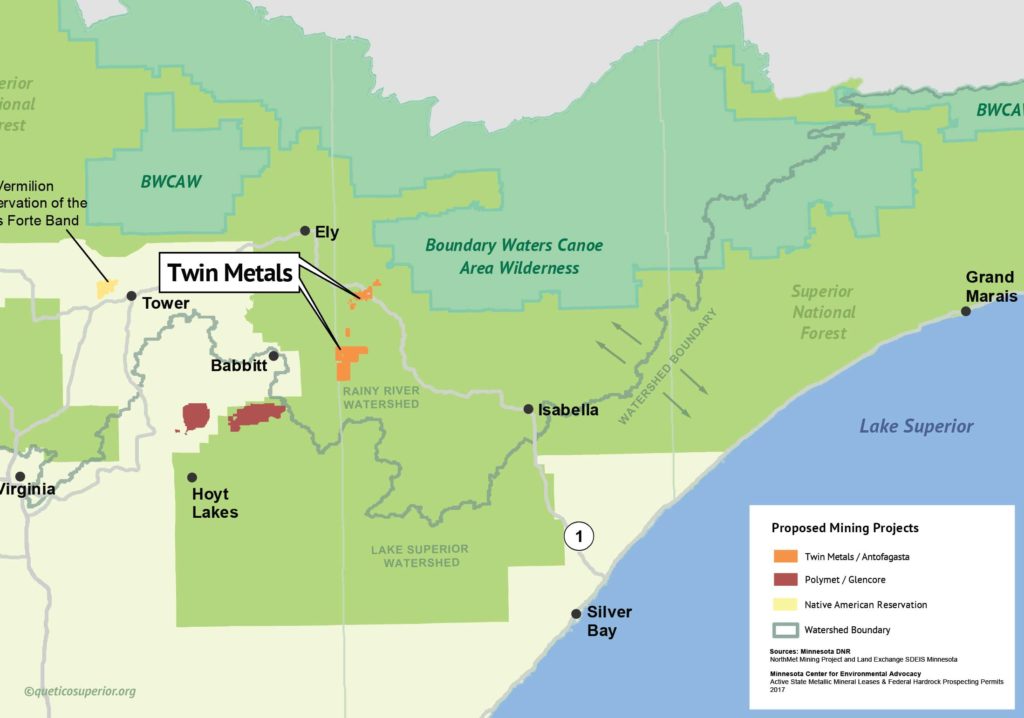
A bill to provide funding to the Department of the Interior in the next fiscal year would prohibit the agency from proceeding with the review of any mine upstream of the Boundary Waters Canoe Area Wilderness.
Rep. Betty McCollum of Minnesota’s Fourth District, who chairs the House Interior-Environment Subcommittee, worked to get the language included in the FY 21 Interior-Environment bill.
The broad piece of legislation covers everything from the National Park Service to the Environmental Protection Agency. It would provide COVID-19 relief to Native American communities, and require the removal of Confederate monuments from national parks.
And one sentence seeks to stop the administration from moving forward with Twin Metals.

“None of the funds appropriated or otherwise made available by this Act may be used to review or approve a mine plan proposed within the Rainy River Watershed of the Superior National Forest,” the legislation says.
In a statement, McCollum connected the policy to the Trump administration’s decision to cancel a two-year study of copper mining impacts in the Rainy River watershed, which was initiated in the final months of President Barack Obama’s administration. The study was cancelled just four months before it was supposed to be finished, despite assurances from Secretary of Agriculture Sonny Perdue and other officials that it would be completed.
Trump’s appointees have moved to prevent the release of any results from the study.
“The Trump administration continues to block the results of a taxpayer-funded study meant to determine the environmental impacts of sulfide-ore copper mining on the Rainy River Watershed from the American people – instead choosing to advance and fast track a mine project adjacent to the Boundary Waters at every opportunity,” McCollum said.
Earlier this month, the Bureau of Land Management announced it would proceed with the review of Twin Metals’ proposal, while the state of Minnesota deemed it “incomplete” and submitted more than 800 questions, comments, and criticisms.

Mining proponents criticized the bill for not only blocking Twin Metals, but potentially obstructing any new or expanded iron or taconite mines in the region. There are no known plans for new or expanded iron or taconite mines.
“We have the highest environmental and labor standards in the world, so I find it offensive that Congresswoman McCollum would attempt to sneak language in an appropriations bill that would slow iron mining and keep Minnesotans out of work,” said Rep. Pete Stauber of Minnesota’s Eighth District, which includes the Superior National Forest. “In northeast Minnesota, iron mining is a proud tradition, and I will not stand by as anti-mining Democrats in Washington, D.C. continue this dangerous pattern with McCollum leading the charge.”
The full legislation will now await a vote by the full House of Representatives. It would then need to be passed by the Senate and signed by President Trump.
Earlier this year, McCollum introduced legislation that would have outright prohibited copper-nickel mining in the Boundary Waters watershed. The legislation has not been acted on since a subcommittee hearing on Feb. 5.
More Information:
Representative McCollum’s Press Release

